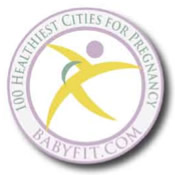
After checking your diet, increasing your calories by at least 300 (above your pregnancy needs), drinking plenty of water and nursing frequently, your supply should increase. However, if you still do not see baby gaining enough weight, producing enough soppy wet diapers, and remaining content, these options may also help:
- Nurse or pump for at least 10-15 minutes every 1-1/2 to 2 hours during the day and every 3 to 4 hours at night to stimulate the breasts to produce more milk.
- Offer both breasts at each feeding, keeping baby at the breast until she takes herself off. You may need to do breast compressions to allow the hindmilk to flow and keep baby engaged at the breast.
- Along with nursing, you may want to add a couple pumping sessions as well.
- Using a pacifier or hands for other sucking is alright, as long as baby is brought to the breast to eat every 2 hours.
- Do not use supplements such as formula, solids, water, or juice. Rely on the breast 'round the clock to supply baby's nutritional needs. Monitor the diapers to make sure baby is getting enough to eat.
- There is some research that suggests that herbs such as fenugreek, blessed thistle, and alfalfa can help increase milk supply. Speak with your physician and get a recommendation before starting any supplementation.
- When nothing else works, some U.S. physicians will prescribe Reglan (Metoclopramide), a prescription drug for low milk supply. Generally this is only necessary in extreme cases. *If you live outside the U.S. in a country where the drug Domperidone (Motilium) is approved, it may also be used for low milk supply and seems to have far fewer side effects than Reglan.
|







Member Comments